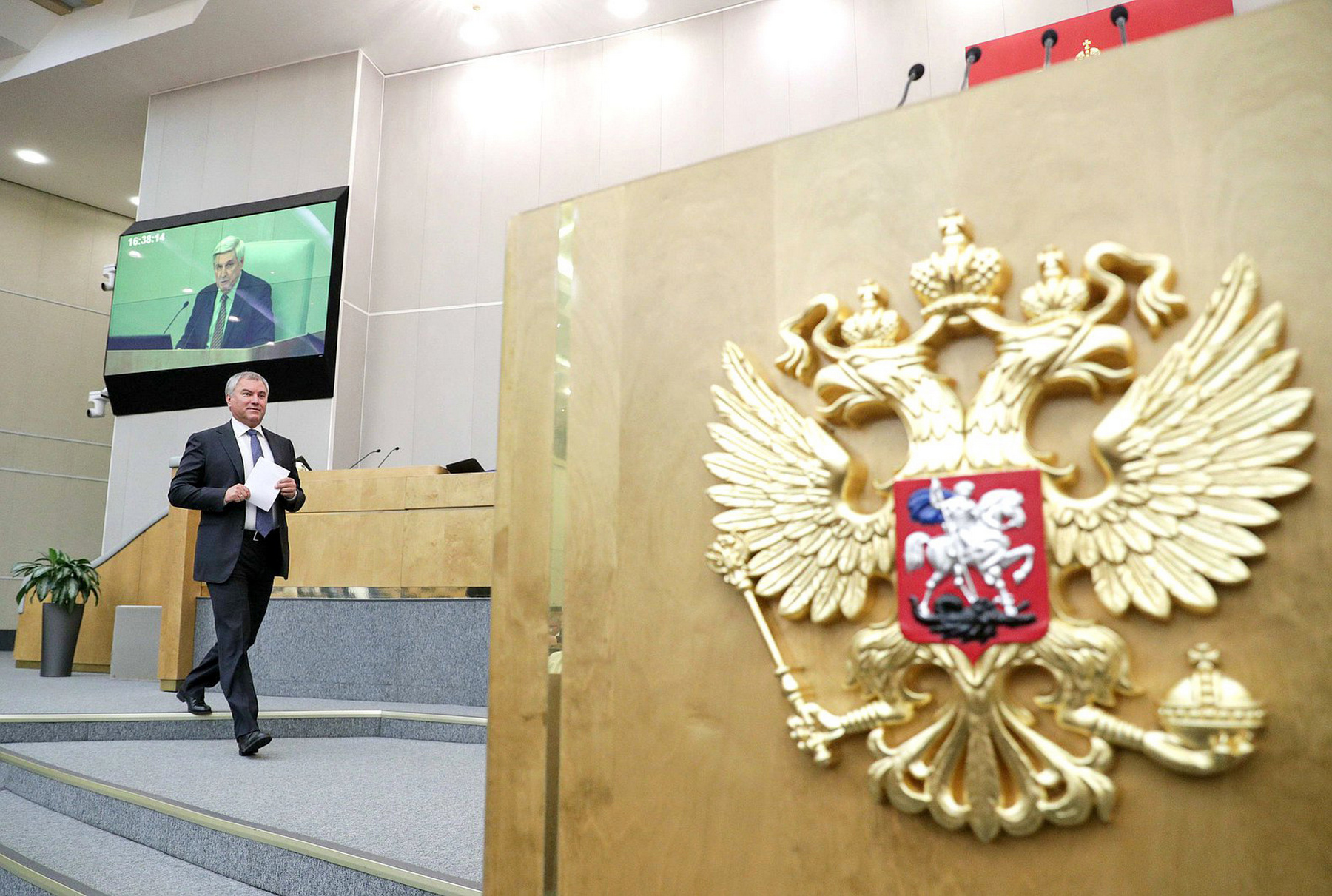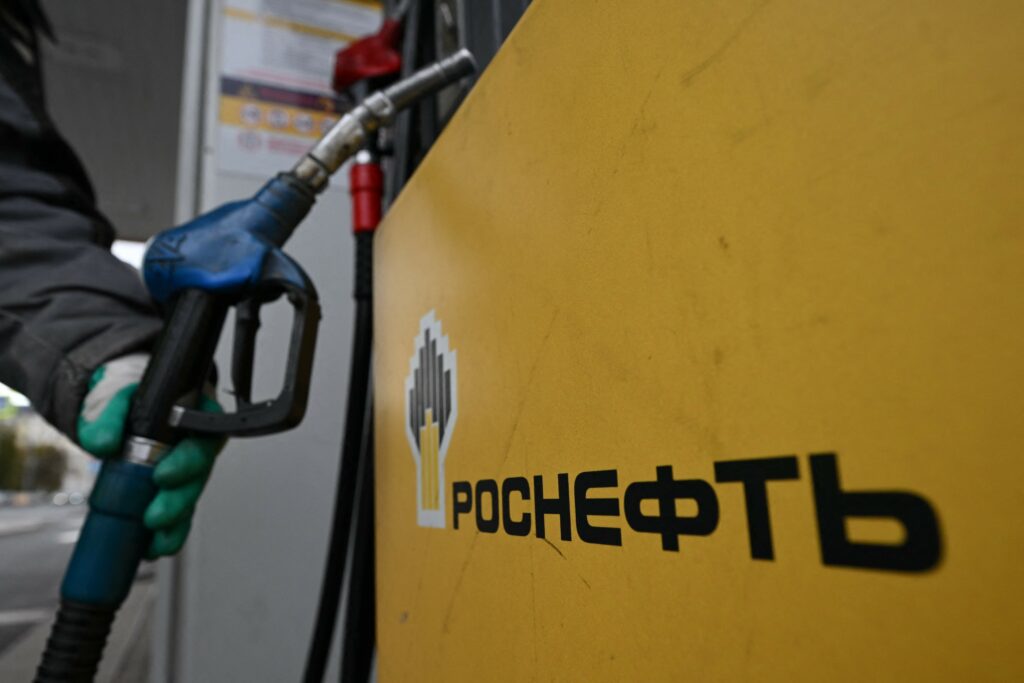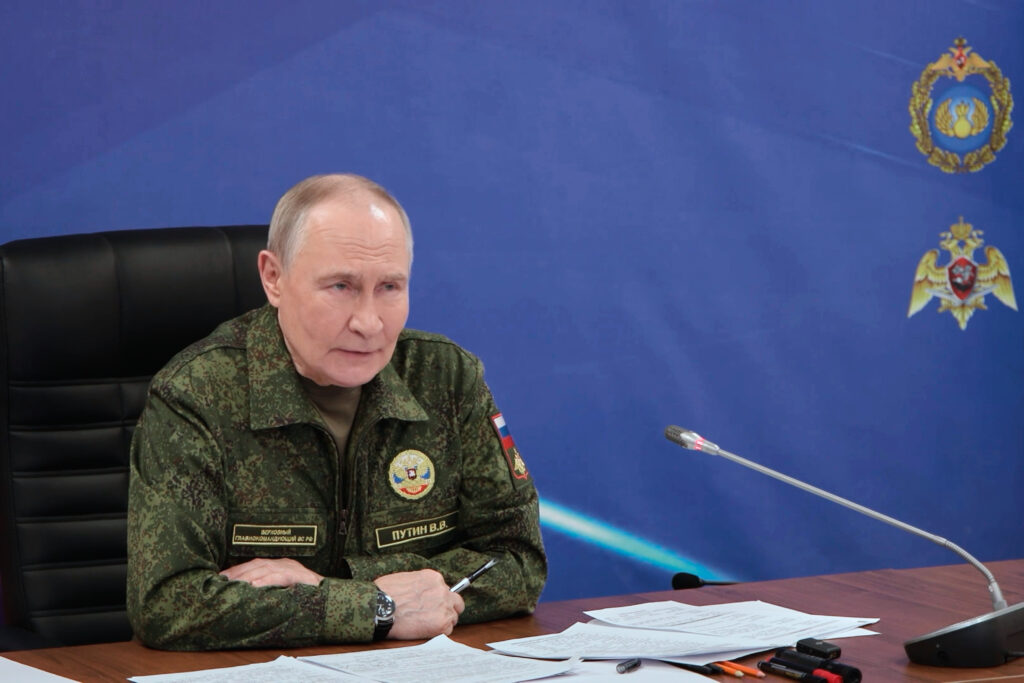After the Duma deputies left for the summer holidays, the government of Mikhail Mishustin submitted a bill to the lower house of parliament to expand the use of economic sanctions. The proposed changes will affect the Ukrainian sanctions list.
Russian sanctions background
The country’s track record with sanctions laws has never been stellar. The USSR was never an adherent of unilateral restrictive economic measures. The main reason: such a huge superpower with nuclear weapons and the strongest army could not boast of a similarly powerful economy. An absence of a market economy and private business entities, the constant need for advanced Western goods and technologies, as well as catch-up development, nullified the possibility and effectiveness of economic coercion. So, the USSR reverted to military force or its demonstration. Sometimes that was direct; other times, it came through allies in the Socialist camp or diplomatic manoeuvre. Of all measures of economic coercion, the USSR selectively observed only the embargo on arms supplies to countries and jurisdictions prohibited by UN Security Council resolutions.
Russia followed the same path, joining the UN international sanctions programs in the 1990s. But the contradictions with Ukraine after the election of Viktor Yushchenko and with Georgia’s Mikheil Saakashvili in the mid-2000s were no longer possible to resolve with the help of brute military force or UN Security Council sanctions resolutions. And there was no legal basis for economic pressure.
By the end of 2006, Russia adopted the Law on Special Economic Measures (281-FZ). However, it was «lost» amid competing legislation on security, military-technical cooperation and foreign trade. This is confirmed by how no reference to 281-FZ was present with the appearance of a list of American politicians, military and judges, formed on the basis of the «Dima Yakovlev law» («AKA Law of scoundrels»). Another problem with 281-FZ is that no liability has been established for its violation or non-compliance. That is, the provisions of this law can be observed only at will. In spring 2019, 83-FZ added coercive measures to the name and text of the law: the sanctions resolutions of the UN Security Council became binding in Russia from when they were published on the official Internet portal of legal information. However, there were no changes for unilateral restrictive measures.
Draft on changing the current sanctions legislation
On July 28, 2020, the government submitted to the State Duma a draft amendment to the Russian legislation on sanctions. According to an explanatory note, it was to create a legal mechanism for special economic measures to prohibit financial transactions and (or) freezing (blocking) funds and other property of blocked persons, as well as financial transactions, committed in the interests and (or) in favor of the blocked persons.
The new bill once again does not introduce liability for non-compliance with the legislation on sanctions. Part 4 of Article 3 of the current edition of 281-FZ contains a reference rule on the responsibility of officials under federal laws. However, these federal laws were never adopted; practice under this article is absent. At the same time, such laws rely on the prospect of criminal or administrative responsibility and the availability of appropriate law enforcement practice. Examples include Section 5 of the 1977 IEEPA in USA or Section 8 of the 1992 Canadian Special Economic Measures Act. The most serious punishment that the Russian bill provides is the revocation of a financial market participant of a license. But even this measure is not specified: what needs to be violated for the Central Bank to revoke the license, how many times, or for what period?
The government plans to control sanctions programs through financial market participants. The project establishes a circle of people from 16 special subjects who have to follow the law. These are not only banks and insurance companies, but also lottery organizers and federal postal organizations. Only the Russian Post falls under the latter. The right to correspond is one of the fundamental human rights. In the USA, for example, correspondence, sending and receiving mail are removed from the list of possible prohibitions if material values are not sent in the letter. With the rest, Russia is moving within the framework of the global trend to monitor compliance with sanctions legislation through financial control. The global community succeeded in defeating international terrorism due to the deprivation of its access to the world financial and banking system. Therefore, most of the «sanctioning» bodies of individual states contain the words «finance» or «economy» in the title. For example, a UK specialized authority that is operational since Brexit is called the Financial Sanctions Service (OFSI).
It is obvious the Russian bill is against the «Ukrainian» list, which currently numbers 574 people and 75 legal entities. Russia has no other lists. The new regulation is not supposed to apply to the above list under the «Dima Yakovlev law». Further, it is unlikely that the American military, politicians and judges listed have assets or accounts in Russian banks.
The hallmark of economic sanctions is surprise. But by the time the law is adopted and 30 days later comes into force, all on the «Ukrainian» list will have had time to withdraw assets, avoiding trouble. So, the mechanism is being formed «for future usage» or for applying special economic measures to future programs.
Government agencies will have to report quarterly on frozen assets and blocked funds. This idea came from the Americans. But in the US, the business itself must report to the regulator on blocked assets and on refusals in transactions on sanctioned grounds. According to the Russian project, the state bodies themselves and the Central Bank will have to report to the Ministry of Finance. This is good news for business, since you will not have to fill out and submit regular reporting forms.
The bill also expands the list of prohibitions and restrictions. For example, Government Decree No. 1300 on the formation of the «Ukrainian» list implies only two types of restrictions: blocking (freezing) non-cash funds, book-entry securities and property on the territory of Russia, as well as a ban on the transfer of funds (withdrawal of capital) outside the Russian territory. Now there will be more restrictions. At the same time, many of the proposed prohibitions and restrictions repeat the measures set out in Article 4 of the 2014 Law of Ukraine «On Sanctions».
The bill refers to the exemption of business from civil liability for the conscientious application of the sanctions legislation. This is unconditional progress. Business entities have no legal grounds for non-compliance with the provisions of the law; liability to the contractual counterparty has not gone away. However, the draft does not contain a word about the ban on meeting the requirements of the persons on the list. This problem has been resolved in the US and EU, but has not yet been resolved in Russia and Ukraine.
The proposed bill ignores the right to appeal the inclusion in the sanctions list. Legal grounds for challenging the sanctions exist not only in the US and EU legislation, but even at the UN level. After the first successful removal from the sanctions list, achieved in the EU Court of Justice, a special ombudsman appeared at the UN level to consider complaints about being included in a terrorist list. And this question is relevant. For example, one Ivan Ivanov could be included in such a list, yet the assets will be frozen of another Ivan Ivanov. The draft does not clarify where and how a non-resident with limited rights can challenge his inclusion in the sanctions list, how to protect his rights and in what order.
In general, there are many shortcomings in the draft law under consideration. For example, there are no requirements for the form of the list and the necessary personal (identification) data. Nothing was said about the need to state the reasons for inclusion in the list. According to paragraph 3 of part 2 of Article 2 of 281-FZ, the principle of applying special economic measures is the validity and objectivity of the application of sanctions. However, it is enough to look at Appendices 1 and 2 to Resolution 1300 to understand that in relation to the persons listed in it, the principle of reasonableness and objectivity is not applied.










